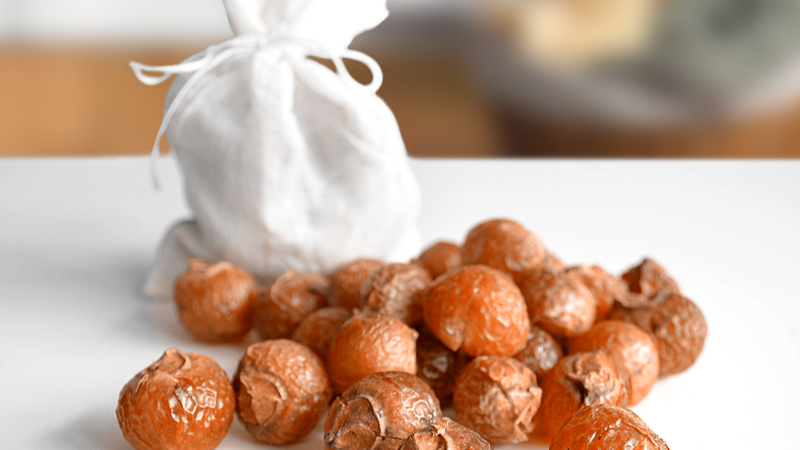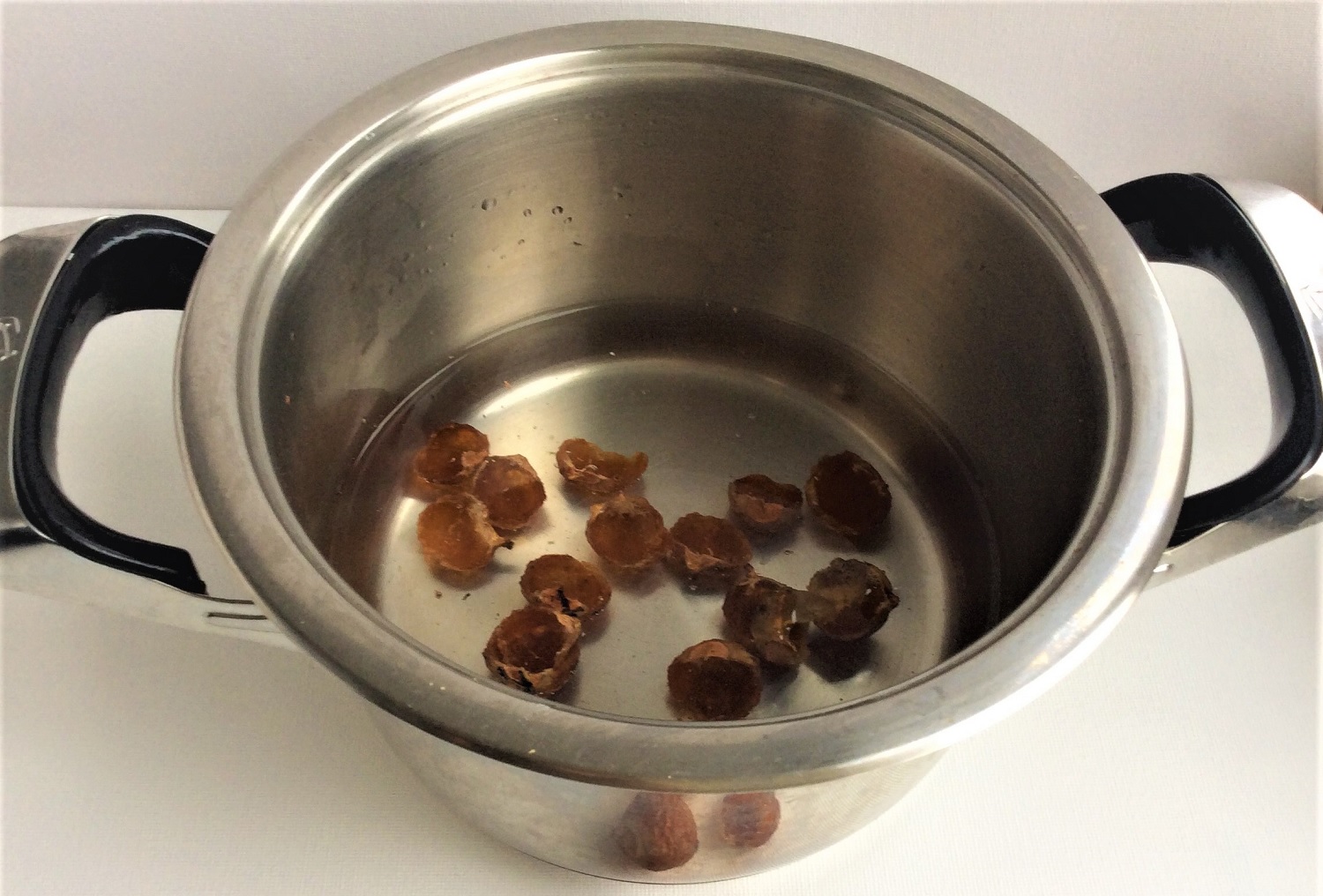In Nepal and India, soapnut shells have been used for hundreds of years as a plant-based laundry detergent or body wash and shampoo. They are very gentle on the environment and on the skin. They contain no petroleum, chlorine or synthetic perfumes or preservatives. They are suitable for allergic, sensitive and eczematous skin. After use, they can be thrown as fertilizer in flower beds, composts or freely into nature and municipal waste as they are 100% biodegradable. The use of soapnuts is both environmentally friendly and cost effective. Today we will show you how to use soapnuts when doing laundry.

Laundry detergent
Washing with soap nuts is easy and suitable for all types of laundry (wool, children’s clothes, silk, cotton, etc.). When doing laundry twice a week (2 people), 0.5 kg of soapnuts will last about 10 months. The soapnuts can be reused repeatedly until they lose their shine.
Instructions:
- Place 4 soapnuts in a cotton bag that comes with a large packet of the nuts.
- Tie the bag, place it in the washing machine and do the washing as you are used to.
- You can also throw the soapnuts directly into the washing machine drum, but there is a risk that they will break into several pieces (I personally washed mine this way, I didn’t mind).
GS tip: Break the nuts in halves to help release the active ingredient saponin. If you’re washing on a low temperature of 30°C, it’s better to make a liquid detergent (see the instructions below), as the saponin from soapnuts is better released at higher temperatures.
When washing white laundry, we recommend adding a couple of tablespoons of washing soda or something similar. For a whitening effect and sanitization, washing at a temperature of 60°C or higher is a smart idea. When washing coloured/dark laundry, we recommend adding 1-2 dl of vinegar. To hold the colour and remove limescale.
Liquid laundry detergent
Preparation:
- Pour 0.5 l of water into the pot (two cups).
- Add 6-7 soapnuts (preferably broken in halves or crushed)
- Boil on low heat for about 20 minutes until the saponin is released and the water is yellow-brown in colour.
- Reduce the volume to about 300 ml to get a very concentrated preparation.
- Allow the concentrate cool.
- Then either pour straight into a bottle or you can strain or filter and pour into clean jars. Close tightly.
- Always use a jar or beer glass with a clean ceramic cap as a container.
- Boiling the soapnuts may not be pleasant for everyone; some people find them smelly. However, this characteristic “smell” disappears completely during laundry washing.

Dosage
Simply add 2 tablespoons directly into the washing machine drum.
Storing method
The soapnut extract will last for 3 days. It can last about 1 month when stored in the fridge, but it is generally better to make a new one once a week and use it wherever you can.
For example, shampoo, dishwashing liquid, laundry detergent, sanitizer or as a limescale remover.
GS tip: Add 10 drops of essential oil with a scent such as Tea Tree Oil, lavender, lemon or rosemary. They make the product smell nice, have a sanitizing effect and serve as natural preservatives. The shelf life of this product varies depending on storage methods. The shelf life is only approximate, based on our experience. If stored in the refrigerator, it will last approximately 2 months, if out of the refrigerator, it will last approximately 7 days.
The liquid mixture made from water and soapnuts can also be frozen. Pour the cooled mixture into an ice cube tray and freeze. Then just drop this ice cube into a bucket of hot water and wipe the floors or throw in the washing machine and do the laundry. Again, you can add essential oil as well.


0 Comments